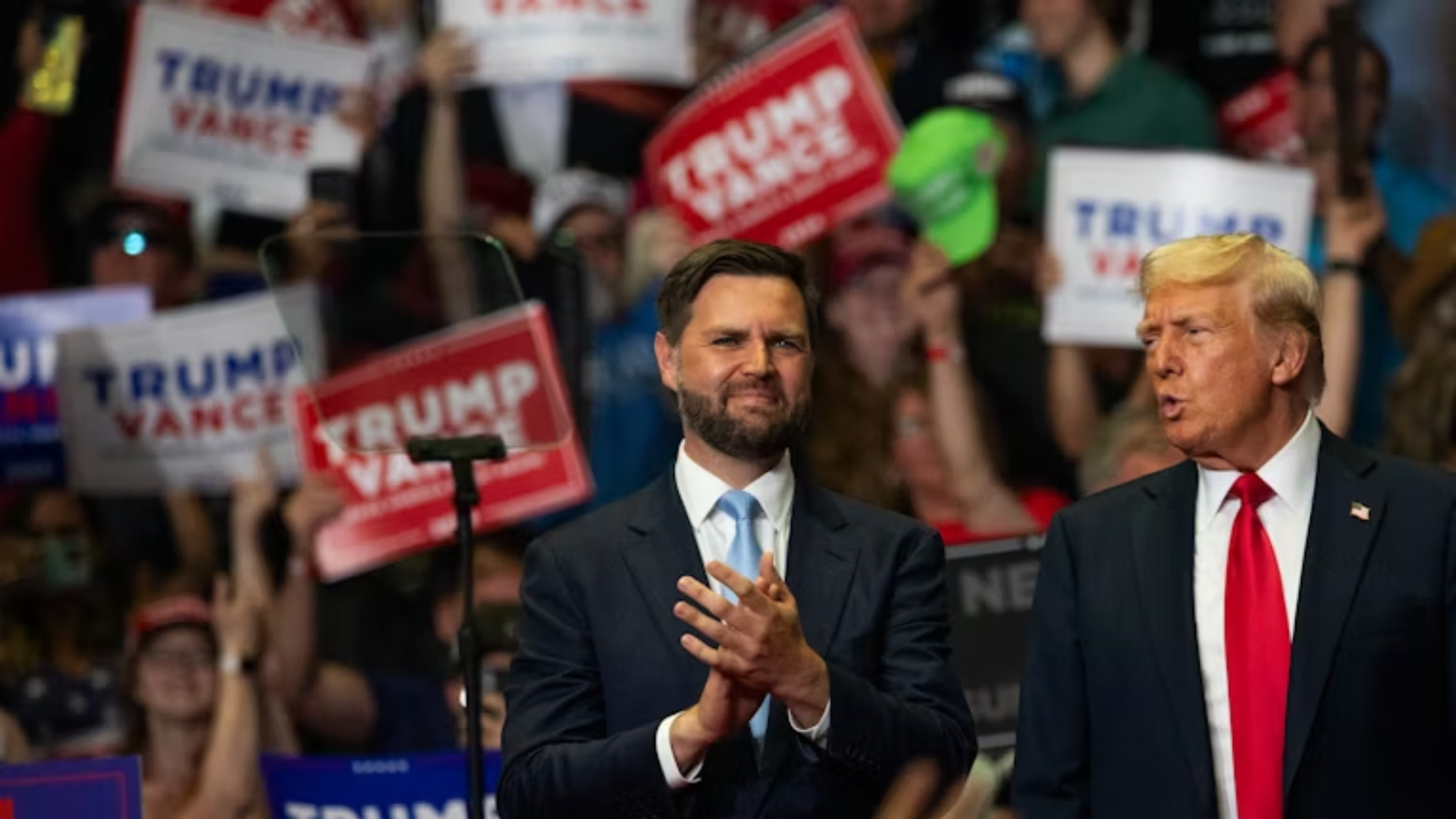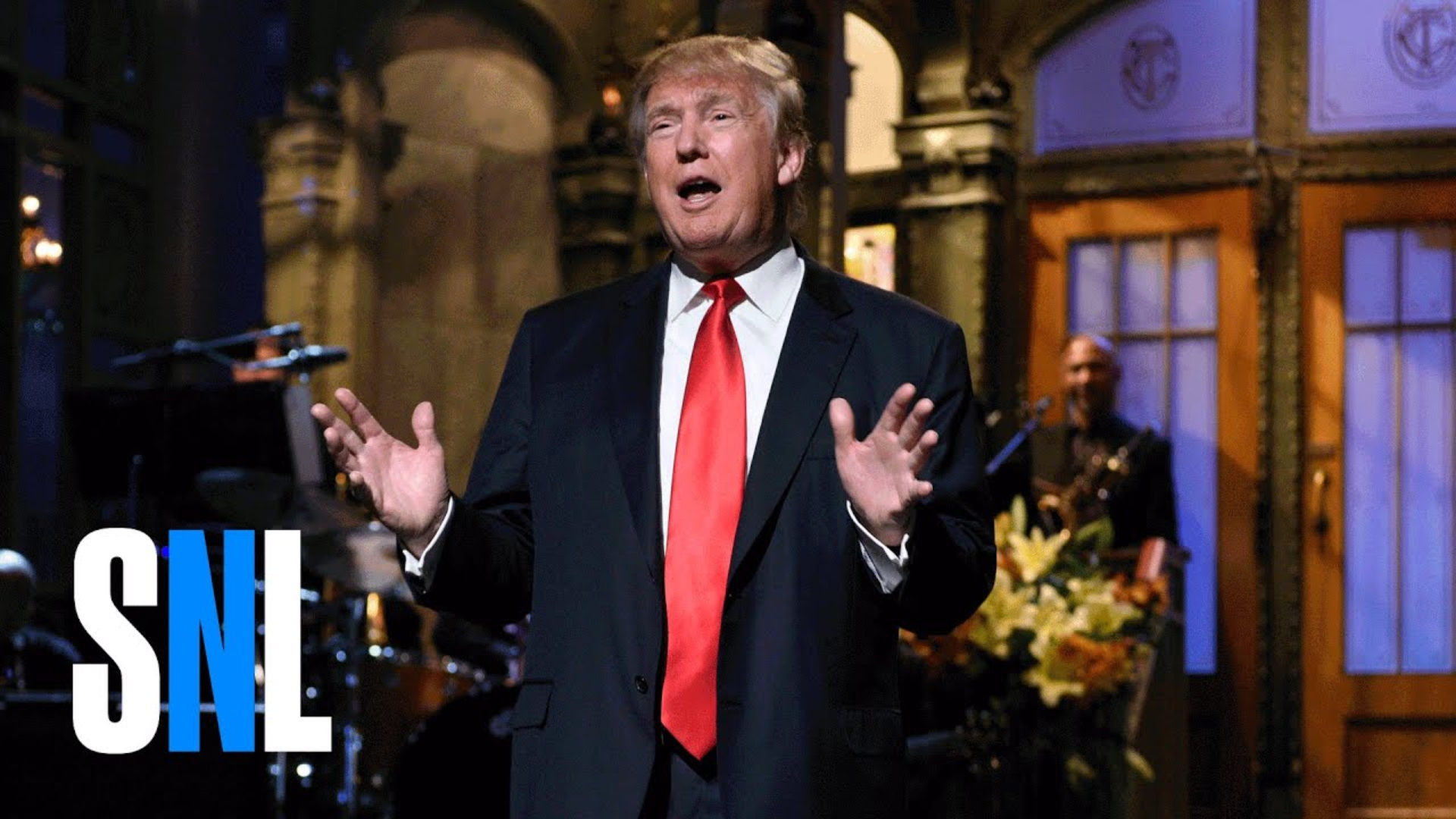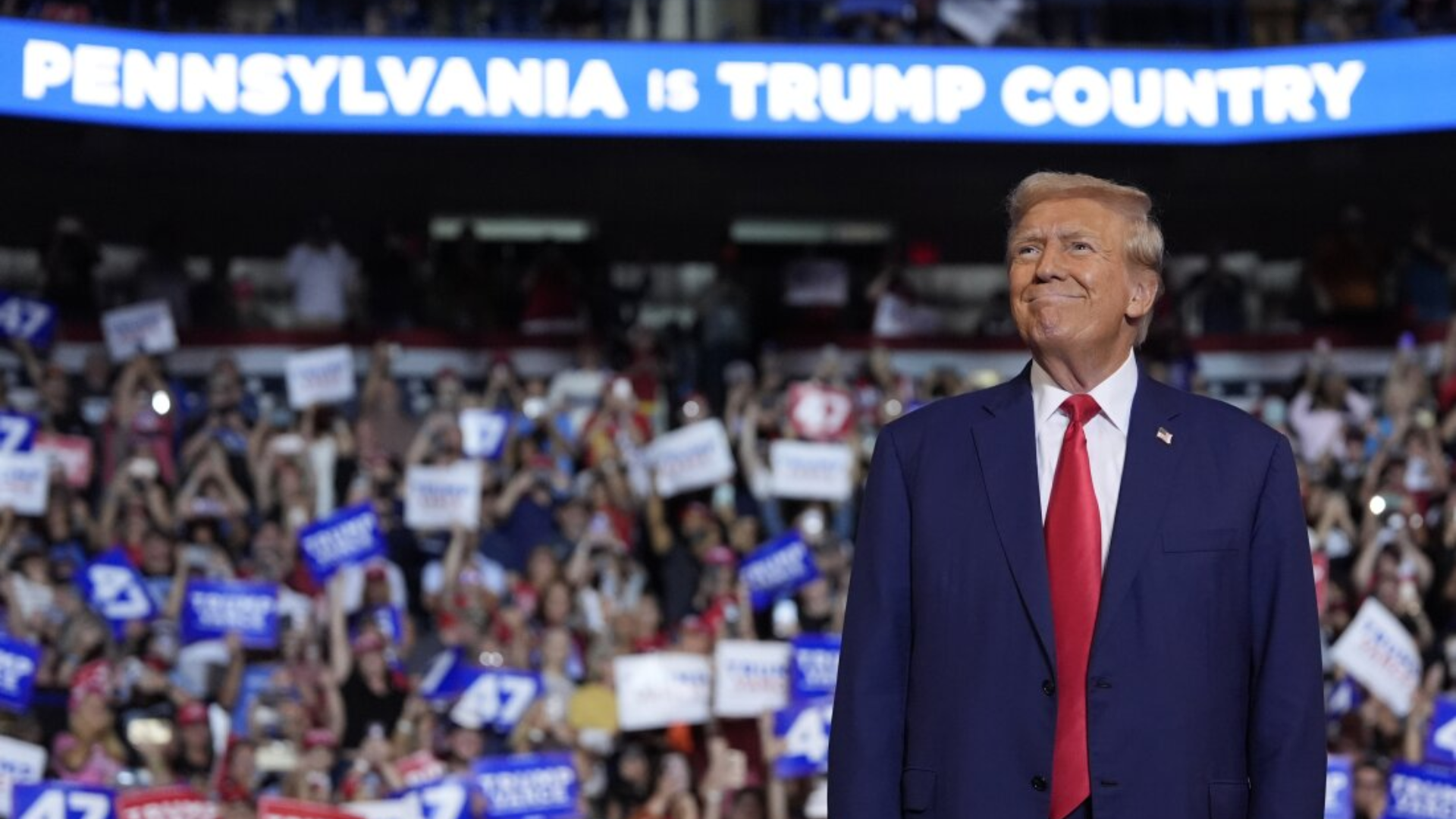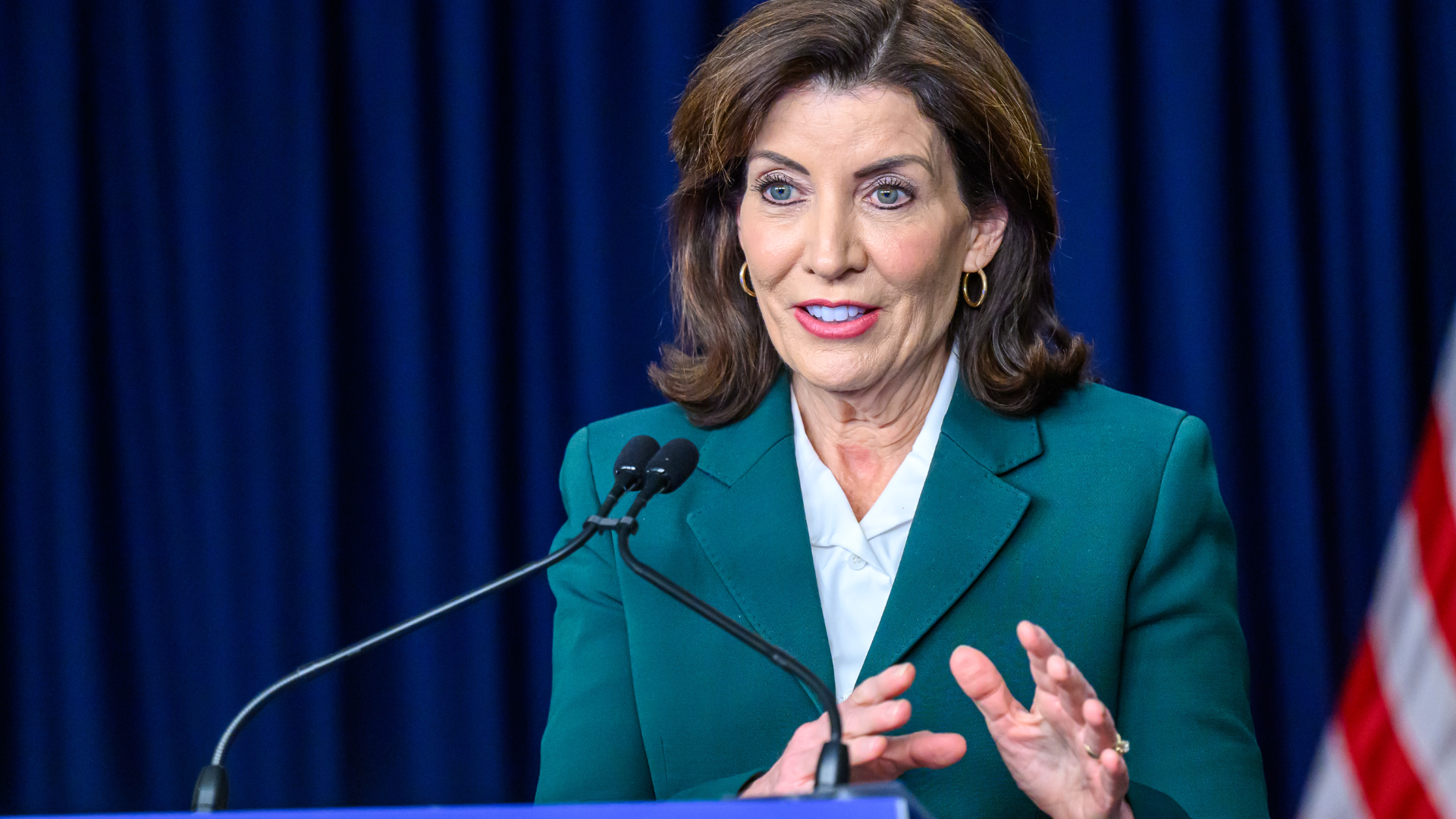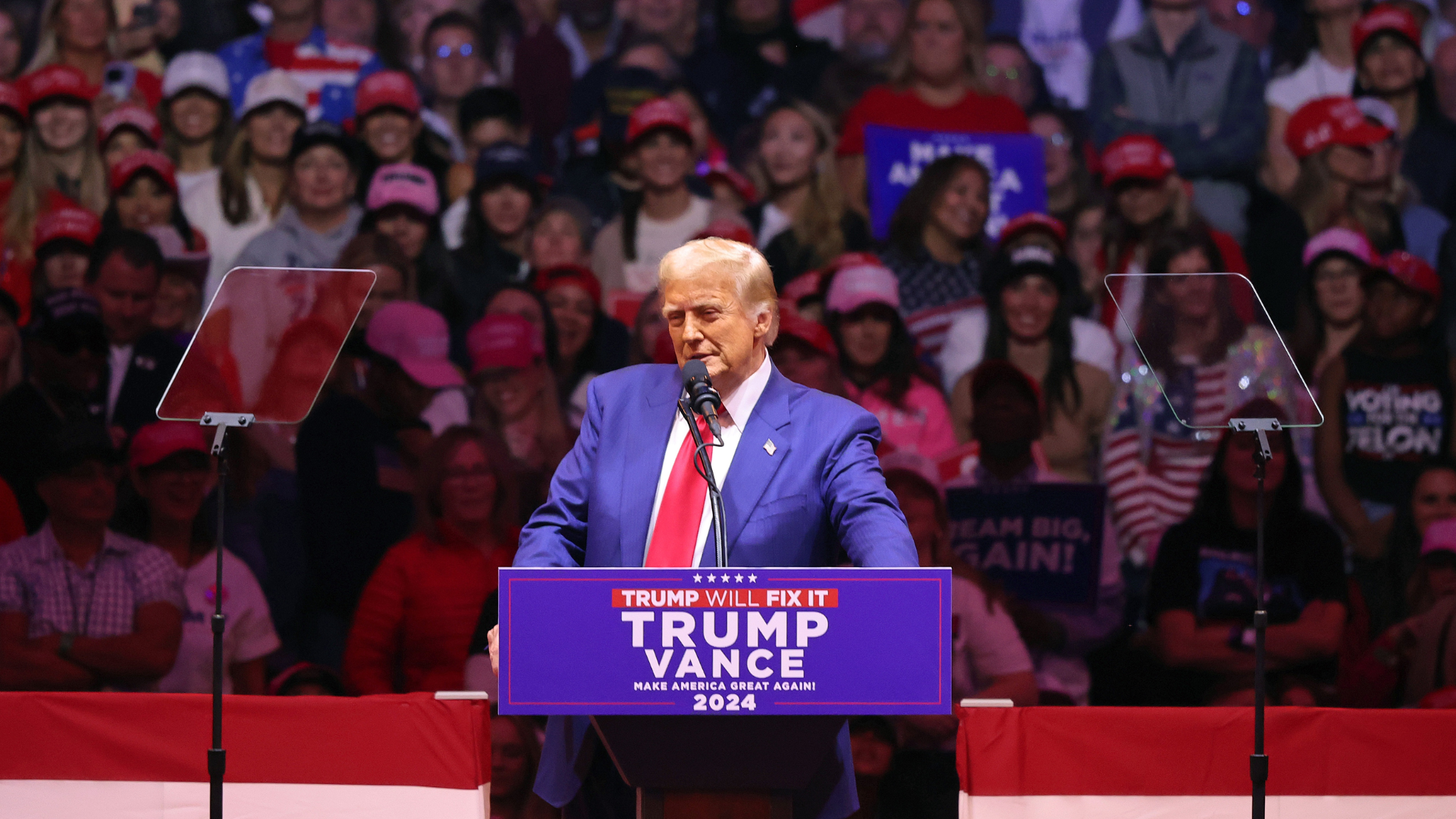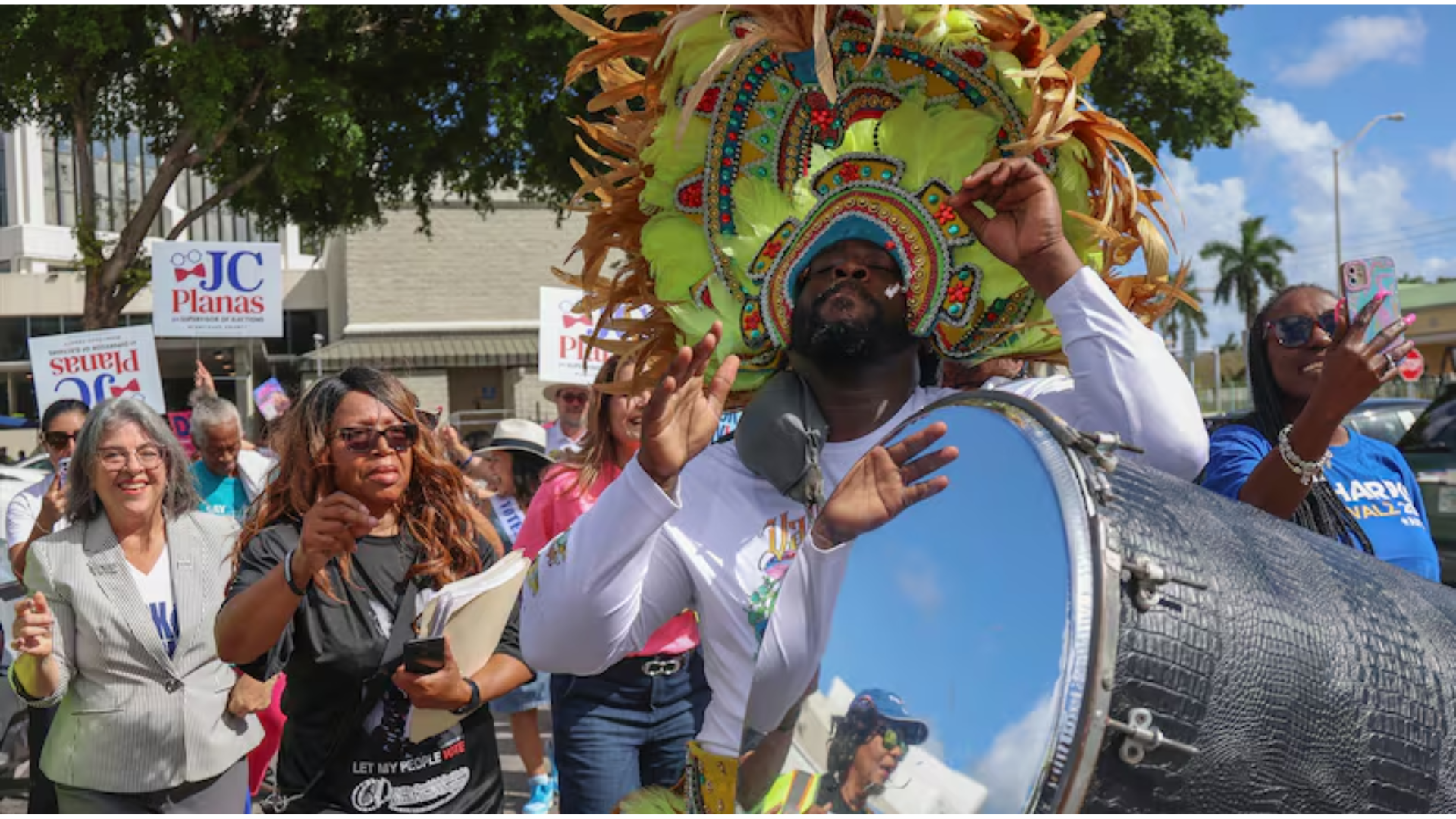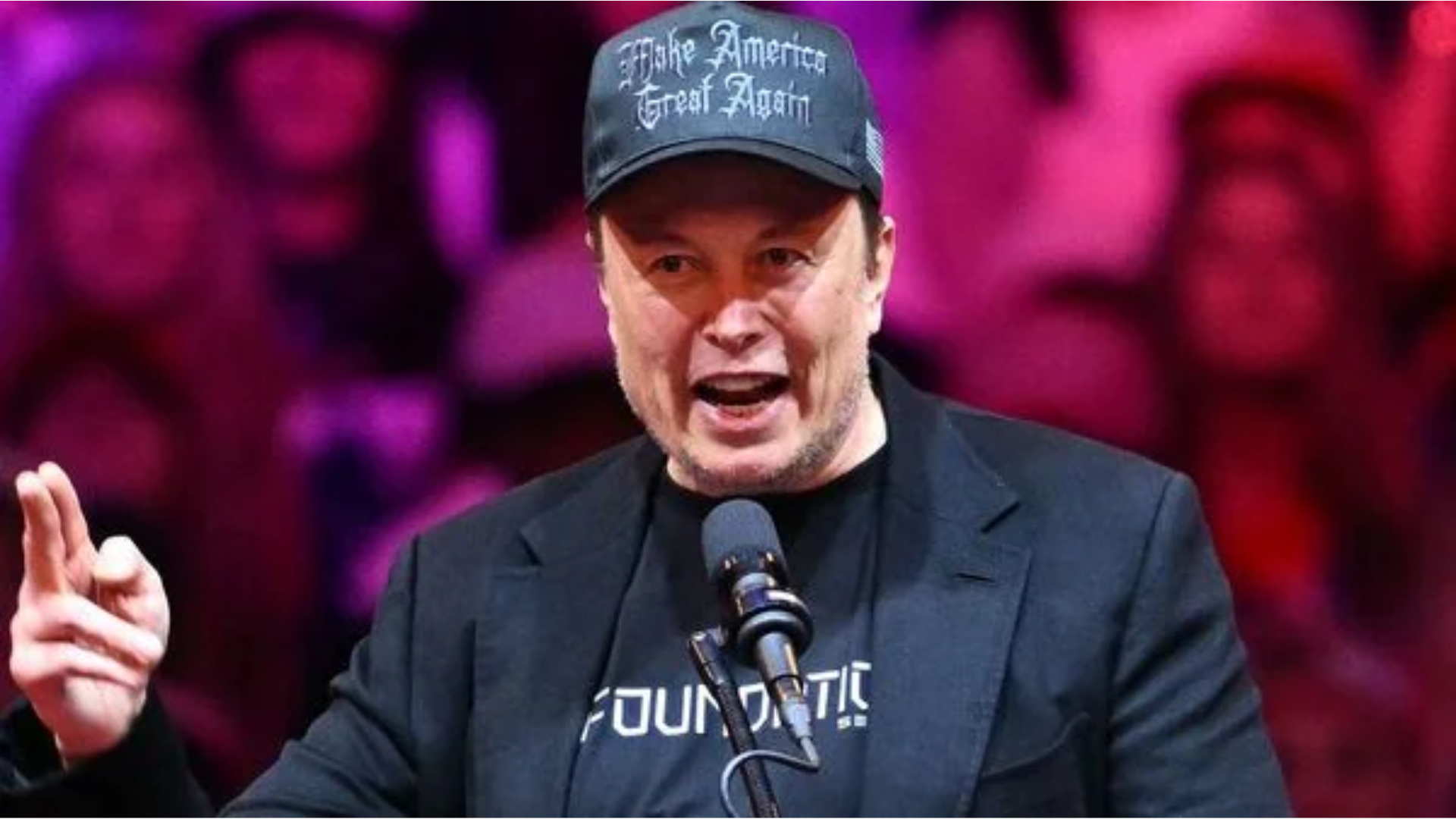Former President Donald Trump took the stage at Madison Square Garden, marking the final week of his campaign with an unapologetically hardline speech that re-emphasized his anti-immigrant stance. Doubling down on pledges of mass deportation and an end to what he calls an “immigrant invasion,” Trump set the tone for what he claims will be a transformational second term in the White House, if he wins against Democratic candidate Kamala Harris on November 5.
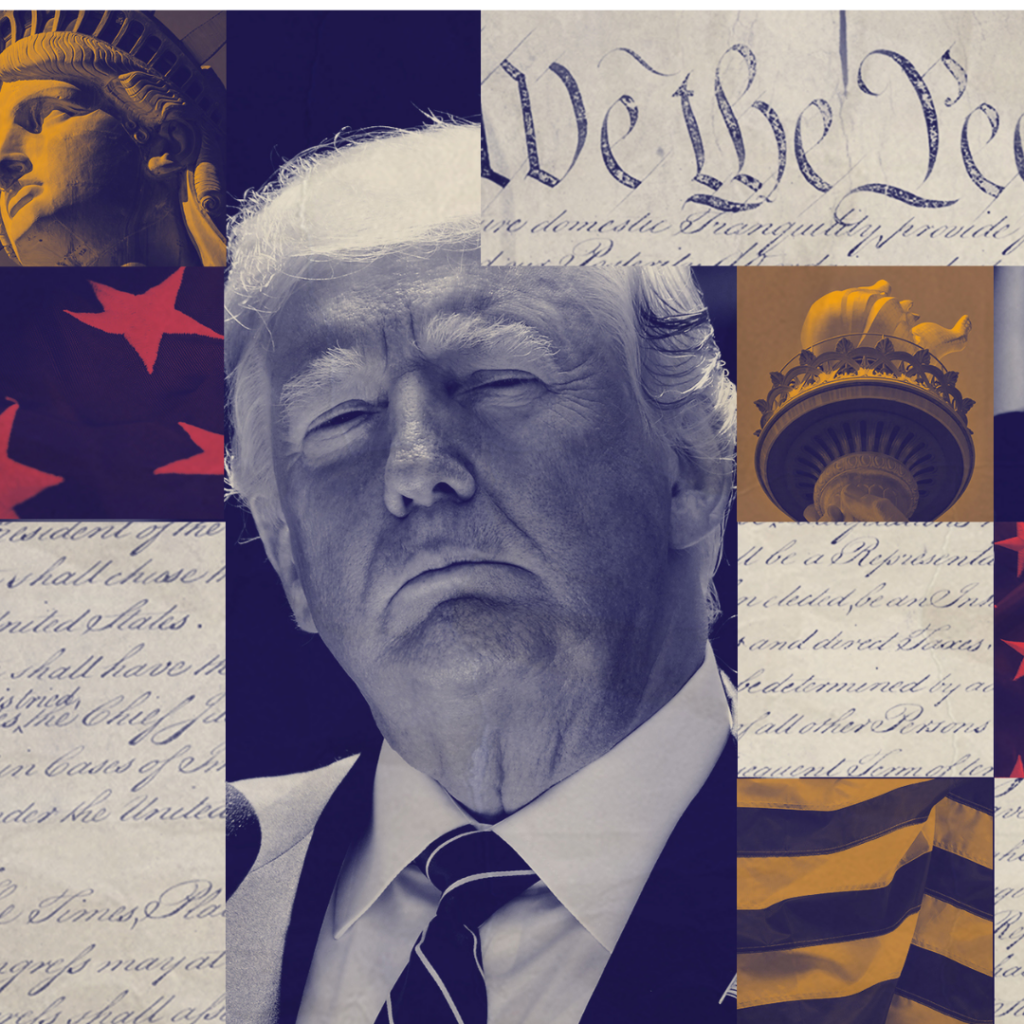
Anti-Migrant Stance and Unchecked Power
Addressing the New York crowd, Trump described the U.S. as an “occupied country,” invoking a message of fear around migration and promising immediate action to address what he calls an “invasion.” Outside Madison Square Garden, Democrats projected critical messages like “Trump is Unhinged” and “Trump praised Hitler,” capturing the divisive atmosphere and Democratic concerns over Trump’s rhetoric and intentions.
Some of Trump’s high-profile allies intensified this narrative, using inflammatory and racially charged language against prominent Democrats and other groups. Former congressional candidate David Rem called Harris the “antichrist,” while others made derogatory statements about Hillary Clinton and Puerto Rico, prompting the Trump campaign to disavow the language as “unreflective” of Trump’s views.
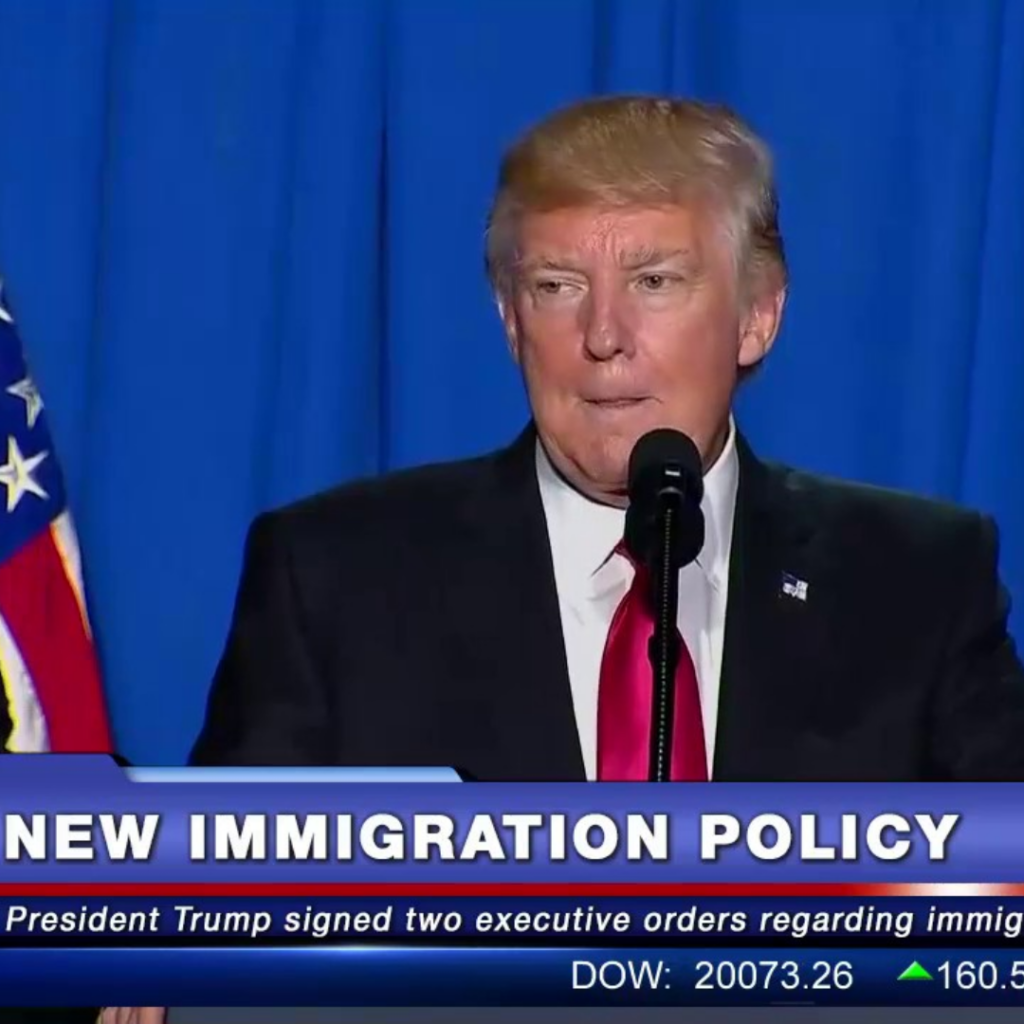
This extreme messaging, marked by fear-driven claims about migrants and enemies “within,” positions Trump as a symbol of the far-right populism increasingly visible on the global stage. Harris’ campaign sees Trump’s stark approach as a clarifying moment for moderate voters and Republicans wary of his authoritarian leanings, particularly after his first term, which saw his approach to power often stretching constitutional boundaries.
Economic Frustrations and Inflation
Alongside his hardline stance on migration, Trump tapped into economic concerns by appealing to voters’ frustrations with high grocery prices and what he describes as an unsustainable economic outlook under Harris. “Are you better off now than you were four years ago?” he asked, promising to “end inflation” and reclaim the “American dream” if re-elected.
His message also included a proposed tax credit for “family caregivers who take care of a parent or a loved one,” directly countering Harris’s own healthcare platform to expand Medicare to cover home care services.
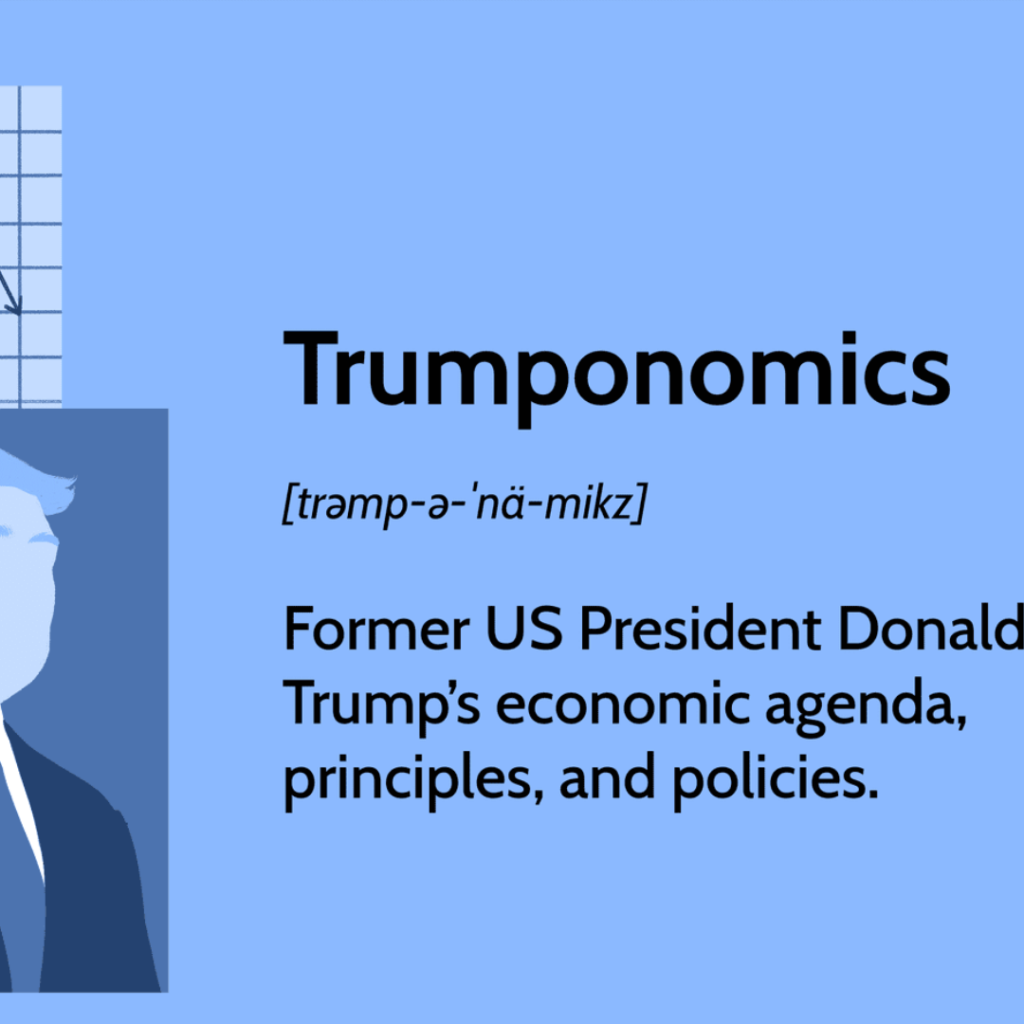
Trump’s economic message reflects his belief that Americans’ frustrations with inflation and economic hardship could be pivotal in deciding the election outcome. By linking these struggles to Democratic policies, he’s betting that his vision for an aggressive economic resurgence will win over swing voters, especially those hit hard by the pandemic’s aftermath.
Rising Tensions and a Nation on Edge
The rally at Madison Square Garden underscored a palpable tension sweeping across the U.S. as both sides see the stakes of this election as nothing less than existential. Trump’s language, which some Democrats liken to fascist demagoguery, has stoked concerns that his next term could prioritize “retribution” against perceived enemies, a sentiment that heightens the dread among his opponents.
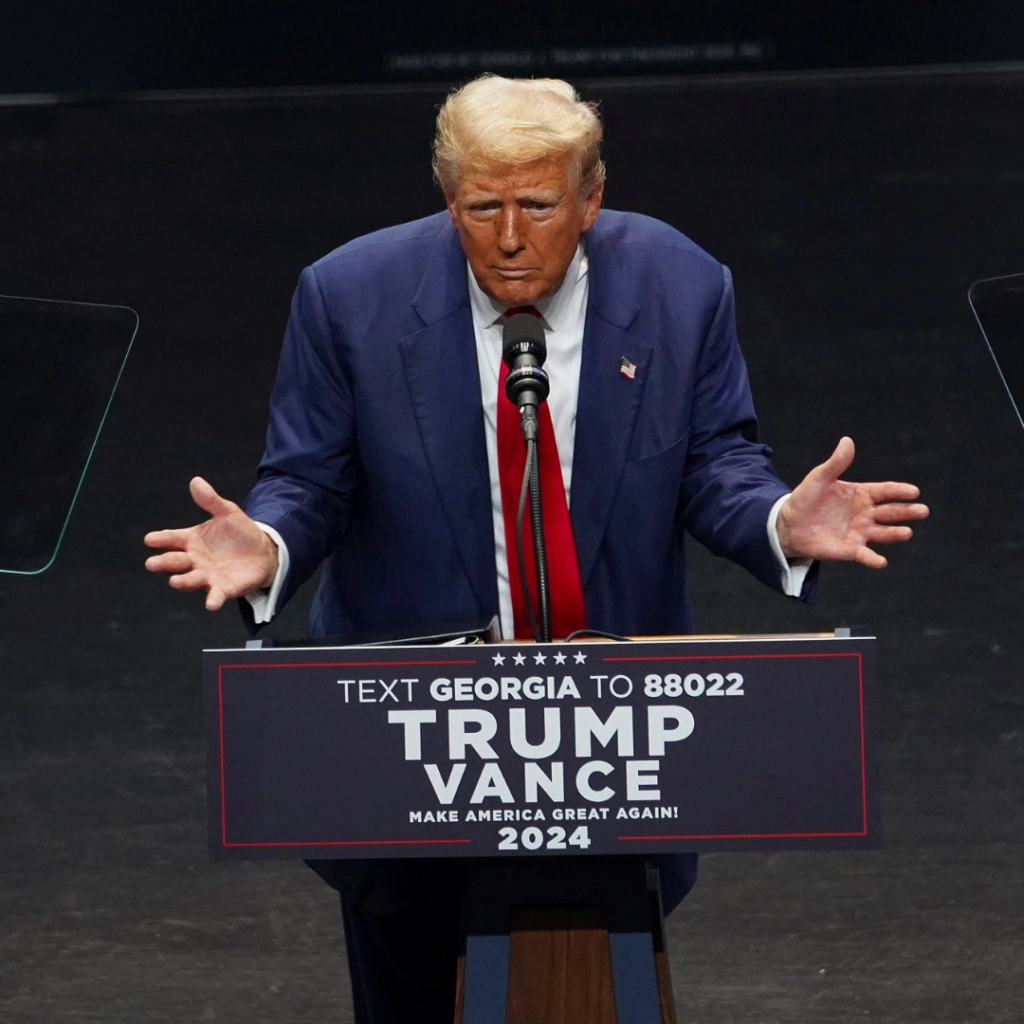
In response to Trump’s rhetoric, Democratic vice-presidential nominee Tim Walz drew a stark parallel, likening the rally’s atmosphere to a 1939 pro-Nazi gathering at the same New York City venue. Harris, meanwhile, has sought to present an alternative vision for the country, promising to put the turmoil of Trump’s first term behind and to uphold democratic values, rule of law, and economic stability.
With both candidates actively campaigning in swing states and targeting key voter groups, the race has reached a dead heat in the final days. Early voting is in full swing, and polls indicate a neck-and-neck race in crucial states like Pennsylvania, Michigan, and Wisconsin, alongside battlegrounds in the Sun Belt. This tight competition foreshadows a potentially contentious and lengthy vote count.
Harris’ Counter-Message on Democracy and Rights
Harris has been increasingly vocal about the threat she believes Trump poses to American democracy, especially as the campaign draws to a close. She plans to make her final appeal in Washington, D.C., on the Ellipse, where Trump’s January 6th rally took place.
Her message echoes a broader theme that Trump endangers democratic norms, a stance that was central to President Joe Biden’s campaign before he withdrew from the 2024 race.
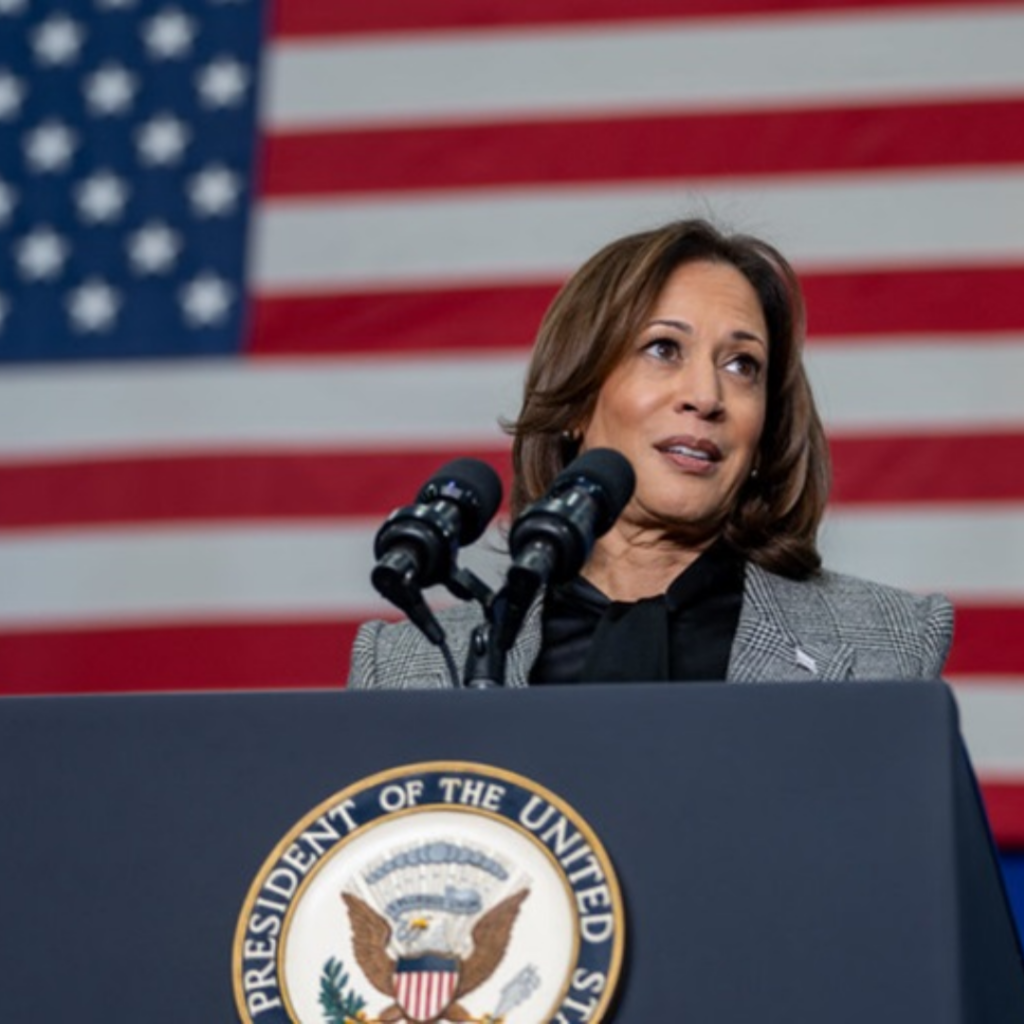
Harris has also been focused on key demographics that could decide the election, including Black male voters and women, emphasizing issues like economic recovery and reproductive rights. In Philadelphia, she appealed to Black voters, engaging in a candid discussion at a local barbershop.
She is also making efforts to harness support from women, as evidenced by her recent appearance with former first lady Michelle Obama in Michigan, where Obama made a strong case against Trump’s record on women’s health and rights.
In these final days, both Trump and Harris have sharpened their messages and sought to rally their core supporters. As Harris warned that Trump represents an existential threat to democracy, Trump embraced his reputation as an outsider prepared to upend the status quo. As election day nears, the nation braces for a historic showdown that could define the future of American politics and the country’s direction.


